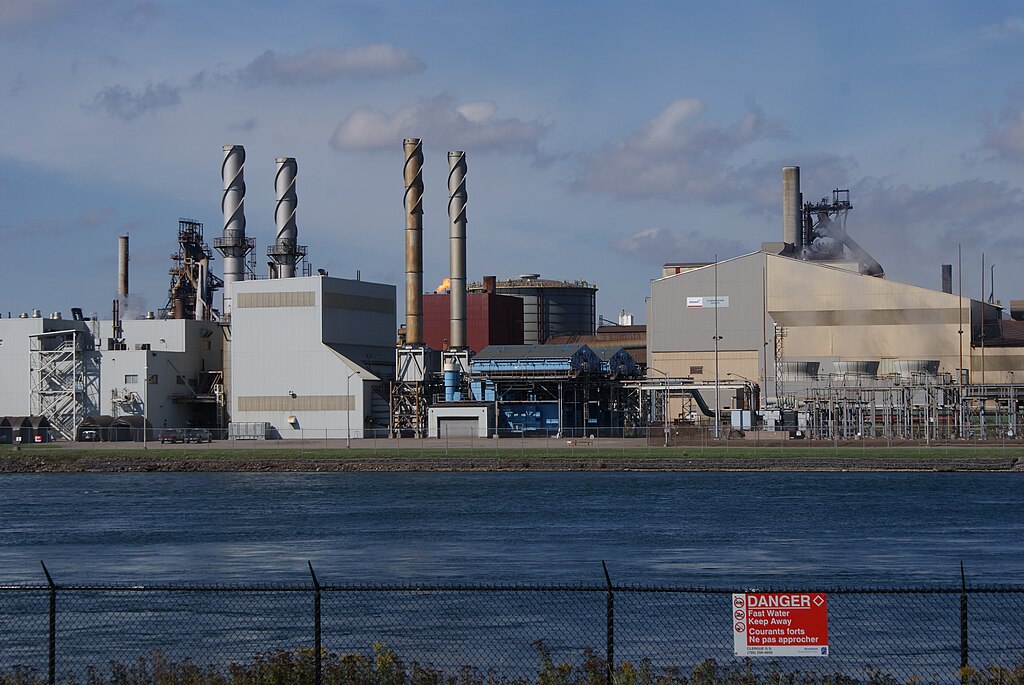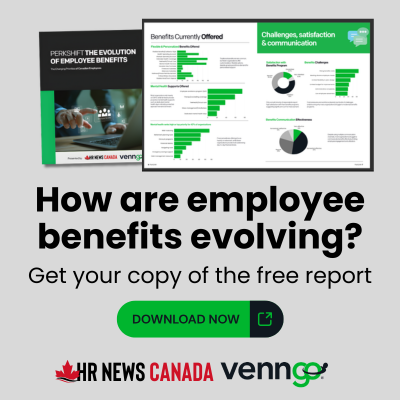By Margaret Kirk | Sault Star
Sault Ste. Marie Mayor Matthew Shoemaker calls the proposed U.S. steel tariffs “unwarranted aggression towards a friendly neighbor,” and supports the federal government to respond with retaliatory tariffs that were effective in mitigating previous threats of tariffs in 2018.
Late Sunday evening, U.S. President Donald Trump unofficially announced a 25 per cent tariff on all steel coming into the U.S., including from its neighbours, Mexico and Canada.
Shoemaker said the news comes as a blow to local industry, particularly Algoma Steel, which relies heavily on exports to the U.S.
Shoemaker said he believed the two countered had resolved the issue of broad-based tariffs for at least 30 days, prior to Trump’s press conference last night. “It makes it difficult when the goal posts are moving week by week and sometimes day by day or hour by hour.”
He spoke to Algoma Steel early this morning to discuss the potential of tariffs. He said it is up to Algoma Steel to determine the concern for job loss.
“I think the big impact is on the bottom line of the steel plant. And every dollar that is going towards mitigating a tariff… or to paying a tariff instead of going into the economy, is one less dollar that’s going to circulate in the local economy, one less dollar that’s going to be spent on local contractors, local materials, local supplies that go into Algoma’s operations,” said Shoemaker.
“It takes money directly out of the Sault Ste. Marie economy,” said Shoemaker, which is especially true given that Algoma Steel profit shares with employees, meaning employees are directly impacted from the bottom line.
Laura Devoni, director of human resources and corporate affairs for Algoma Steel, wrote in an email to The Sault Star, “We are monitoring the situation closely and have been in close consultation with the government regarding the challenges this will present to Algoma Steel and the Canadian Steel Industry.”
The Canadian Steel Producers Association (CSPA) has also voiced strong opposition to the proposed tariffs. Catherine Cobden, President and CEO of the CSPA, released a statement condemning the move and urging swift retaliatory action.
“We are deeply concerned that US President Donald Trump is again threatening more tariffs on Canada, this time directly targeting the steel and aluminum sectors. While the details remain unclear, we will analyze the President’s order once it is released and have more to say at that time,” Cobden stated.
Cobden emphasized the significant economic integration between Canada and the U.S., noting that Canada exports $20 billion in steel to the U.S. annually, with 40% of Canada’s steel imports coming from the United States.
“This is at a time when Canada has worked tremendously hard to align our trade policy with the United States to protect both markets from unfair trade that threaten jobs and communities. For example, Canada implemented its own Section 53 tariffs on Chinese steel imports and a monitoring system of all imports to ensure it can identify the country of melt and pour,” reads the statement.
The CSPA urgently demands that the Canadian government respond with retaliatory measures to combat the devastating impacts of tariffs on the steel sector and its workers.
Shoemaker similarly supports the federal government in implementing retaliatory tariffs that successfully impacted the 2018 tariff dispute during Trump’s first term in office.
“Your government is ready to retaliate, and to support workers and industry as well,” said Sault MP Terry Sheehan.
“The last time Donald Trump imposed arbitrary tariffs on Canadian steel in 2018, our government fought back, with dollar-for-dollar counter tariffs, and we won,” said Sheehan.
He noted the government also has packages ready for industry and workers, if needed.
“I’ve spoke to Algoma and Tenaris and the union presidents and I reminded them that by working together, we are successful,” he said.
The federal government has $155 billion of U.S. goods identified for potential retaliatory tariffs.
“These tariffs will have deep impact on the U.S. people and their economy. The costs will increase for items like cars and refrigerators and a lot of other items,” Sheehan said.
At the provincial level, government retailers such as the LCBO was prepared to remove American goods from the shelves last week, though the plan was paused by Premier Doug Ford as per the 30-day delay for tariffs Trump agreed to with Canada.
Ford also threatened to pull out of contracts with Starlink and no longer procure new contracts with American companies if tariffs were to be placed on Canada.
“Everyone’s waiting on pins and needles to see hour by hour what the news is,” said Shoemaker. “So, until they’re actually implemented, I think it’s business as usual and planning for the worst-case scenario.”
Locally, planning for the worst-case scenario, for Shoemaker, means, “to review our capital dollars, for us to review our purchases, specifically of things like foods and beverages that are sold at the GFL Memorial Gardens and other venues throughout town, making sure that we are integrating Canadian products and removing American products to the greatest degree possible.”
Shoemaker and Sheehan also advise that everybody should be buying Canadian and local goods.
People have already taken to Facebook and Reddit compiling lists of Canadian alternatives to common American products to help shoppers buy more consciously, following Trump’s first announcement of tariffs last Tuesday.
Shoemaker isn’t alone in viewing last week’s initial tariff threat as an attempt by Trump to use the weight of the American economy to push for stricter border policies, which Shoemaker agrees there is value in making as safe as they can be for both sides of the border.
“But, without even waiting to see the plan (that Canada is creating to tighten border control), the goal posts have moved again,” said Shoemaker.
This time Trump cited strengthening American steelmaking as the reasoning behind the tariffs.
“US Steel was one of our great companies, and through a lot of stupidity and bad government, and also bad management of the company, it lost that luster, but it’s going to gain it back and tariffs are going to help,” Trump told reporters on Sunday on Air Force One as he flew from Florida to New Orleans to attend the Super Bowl.
While most border towns in the U.S. are larger than the Canadian cities on the other side, the Twin Saults are in a unique situation because Sault Ste. Marie, Ontario is five times the size of Sault Michigan.
While the impact of consumer traffic back and forth will be bigger on the American side of the St. Mary’s River, the impact will be much larger on the industries in Sault Canada, said Shoemaker.
“The impacts on our economy overall will be, will be industrial economic impacts, which affect almost 50% of the population in the Sault,” said Shoemaker.
When asked about Trump’s recent statement suggesting Canada should become a U.S. state, Shoemaker dismissed the idea outright.
“It will never happen — not willingly,” said Shoemaker. “Canadians are Canadians, and we will not accept being part of the United States. Anyone who thinks that that’s a good plan can move south of the border.”
At press time, Trump’s U.S. executive order had not yet been signed, but there was an expectation that it would be.





